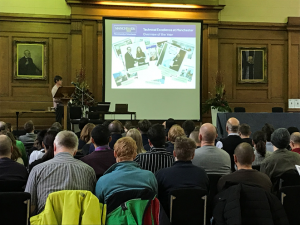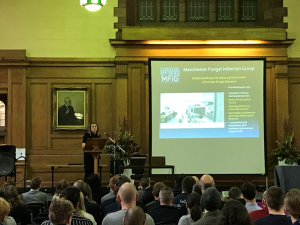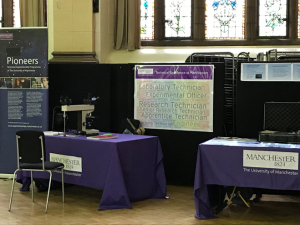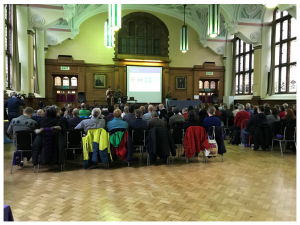Deputy Technical Manager 
Stopford Undergraduate Teaching, Faculty of Biology, Medicine and Health
Describe your work area and its importance.
Stopford Undergraduate teaching has over 1000 students in each year. Our obligation to ensure our undergraduate students are the best trained in the country is at the forefront of what we deliver. The student experience is paramount so there are no second chances – everything must be perfect first time!
Teaching has expanded into the vacation period with the introduction of International Summer Schools and a Norwegian Winter School. These are hugely successful and growing in numbers each year.
Teaching is fully committed to the University of Manchester Apprenticeship Programme where we help in the training of the Apprentice Specialist Laboratory Support Technicians. This is done throughout the year where apprentices are rotated into teaching to gain technical skills. In addition to that support we offer training at our ‘NVQ bootcamp’ during the summer.
On a typical day, what do you spend most of your time on?
There is no typical day in Teaching. While the timetable is set very much in stone my time is spent doing everything from the ground up which also includes the nurturing and training of our University of Manchester Apprentices and much more!
Describe your career path to date, including highs and lows.
I came to the University in July 1997 with only basic qualifications (Maths and English GCSE). My first post as a Laboratory Assistant was in the division of Cells, Immunology and Development. This is where my love of science grew. I was lucky to work with those who could see my passion and potential and I started a Btec in Applied Science (Chemistry) on day release after completing a CVQ with the Institute of Science Technology. I went on to study HNC Biology and was the first ever cohort to graduate with a HNC Biology from North Trafford College!
One of the high points for me during my career was the first time I was author on a research paper. The sense of achievement and recognition for my work was the best feeling ever.
My qualifications and experience opened the door to apply for a Laboratory Technician post in the Undergraduate Teaching Labs in 2003 where I have since progressed to Deputy Technical Manager.
I am currently Pastoral Care Manager for the University of Manchester Apprenticeship Programme and one of 3 people who make up the Apprenticeship Operations Management Team.
What drives you?
I am driven by my love of science, people and the determination to deliver the highest quality in both areas of work – Stopford Undergraduate Teaching and the University of Manchester Apprenticeship Programme.
Tell us a funny story, work-related or not:
When I came for my interview in Teaching, the panel was made up of the Chief Technician, Senior Technician and a member of the technical teaching staff. The member of teaching staff on the panel was Anthony Steel. Out of the 3 staff on the panel – I was Anthony’s least favourite and he was not convinced that I was the right person for the job. 14 years later I have gone from strength to strength, adapted to the ever changing structure of our faculty, teaching, increase in student numbers, changes in technology and also got married! – to Anthony Steel!
What’s the best career advice you’ve received?
You are never too old to learn!



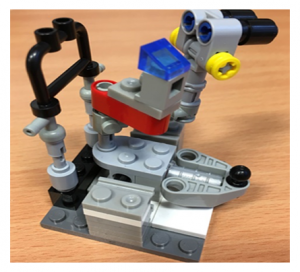 “A couple of academics from Salford University ran a Crystal Maze-style session where one of the challenges was to build something out of Lego. I thought this is brilliant. I started thinking about how I could do this in my teaching,” Mr Gridley told OT.
“A couple of academics from Salford University ran a Crystal Maze-style session where one of the challenges was to build something out of Lego. I thought this is brilliant. I started thinking about how I could do this in my teaching,” Mr Gridley told OT.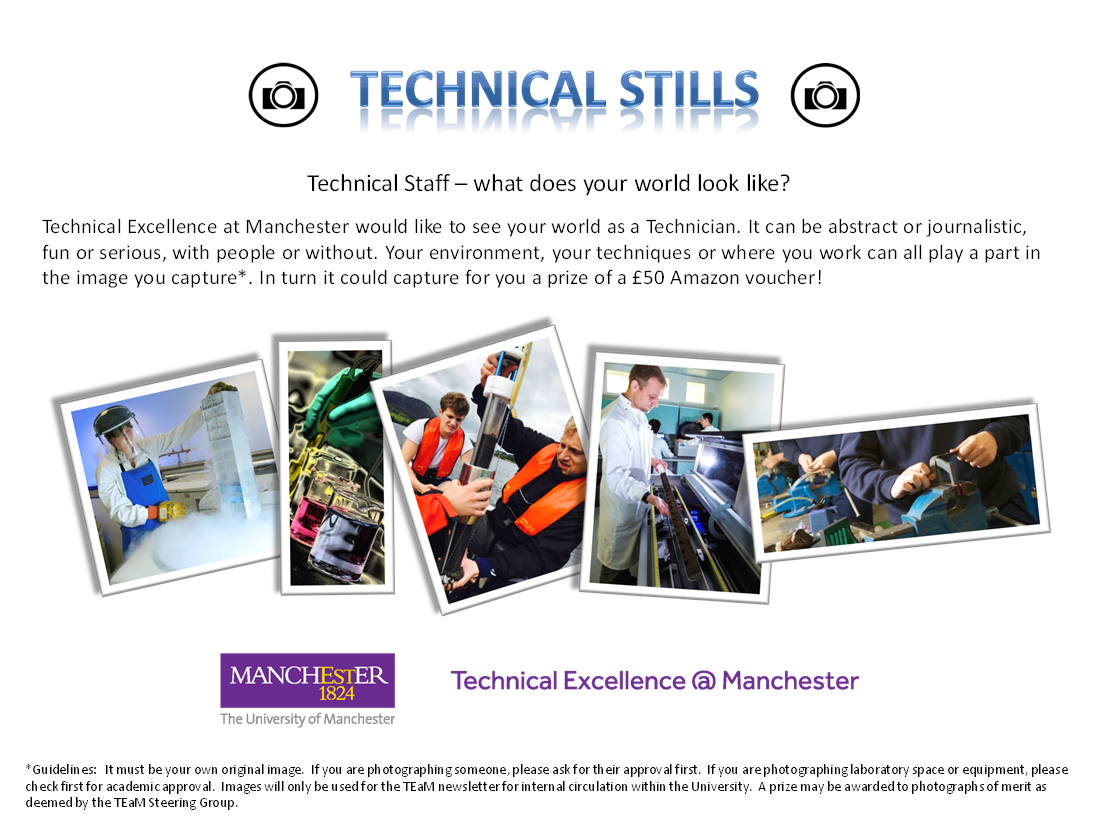
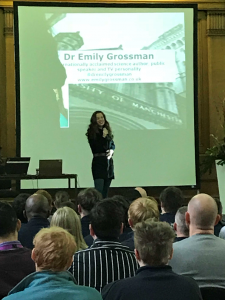 Nearly 200 technical staff gathered together on Tuesday 12th December to celebrate TEaM (Technical Excellence at Manchester). Created by technical staff, for technical staff, the group aims to raise their profile across campus, ensure their contributions to the University are recognised, and empower them to develop their careers.
Nearly 200 technical staff gathered together on Tuesday 12th December to celebrate TEaM (Technical Excellence at Manchester). Created by technical staff, for technical staff, the group aims to raise their profile across campus, ensure their contributions to the University are recognised, and empower them to develop their careers.